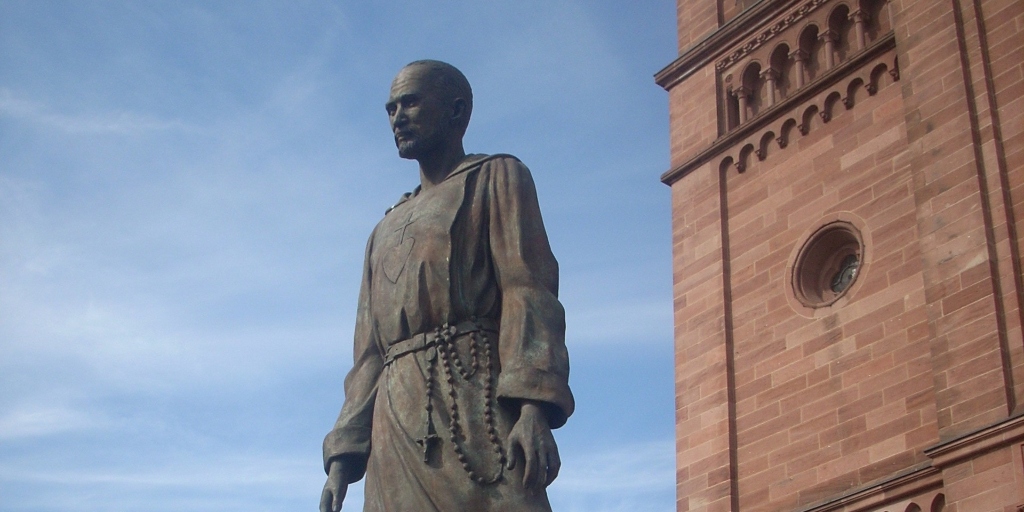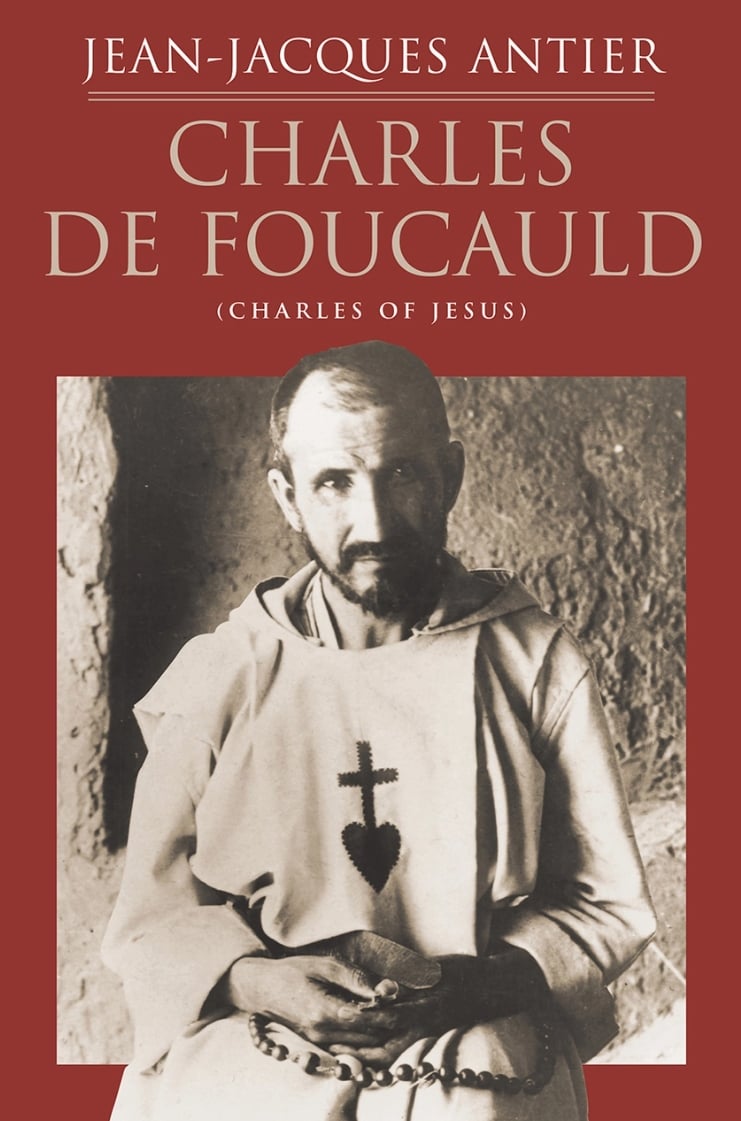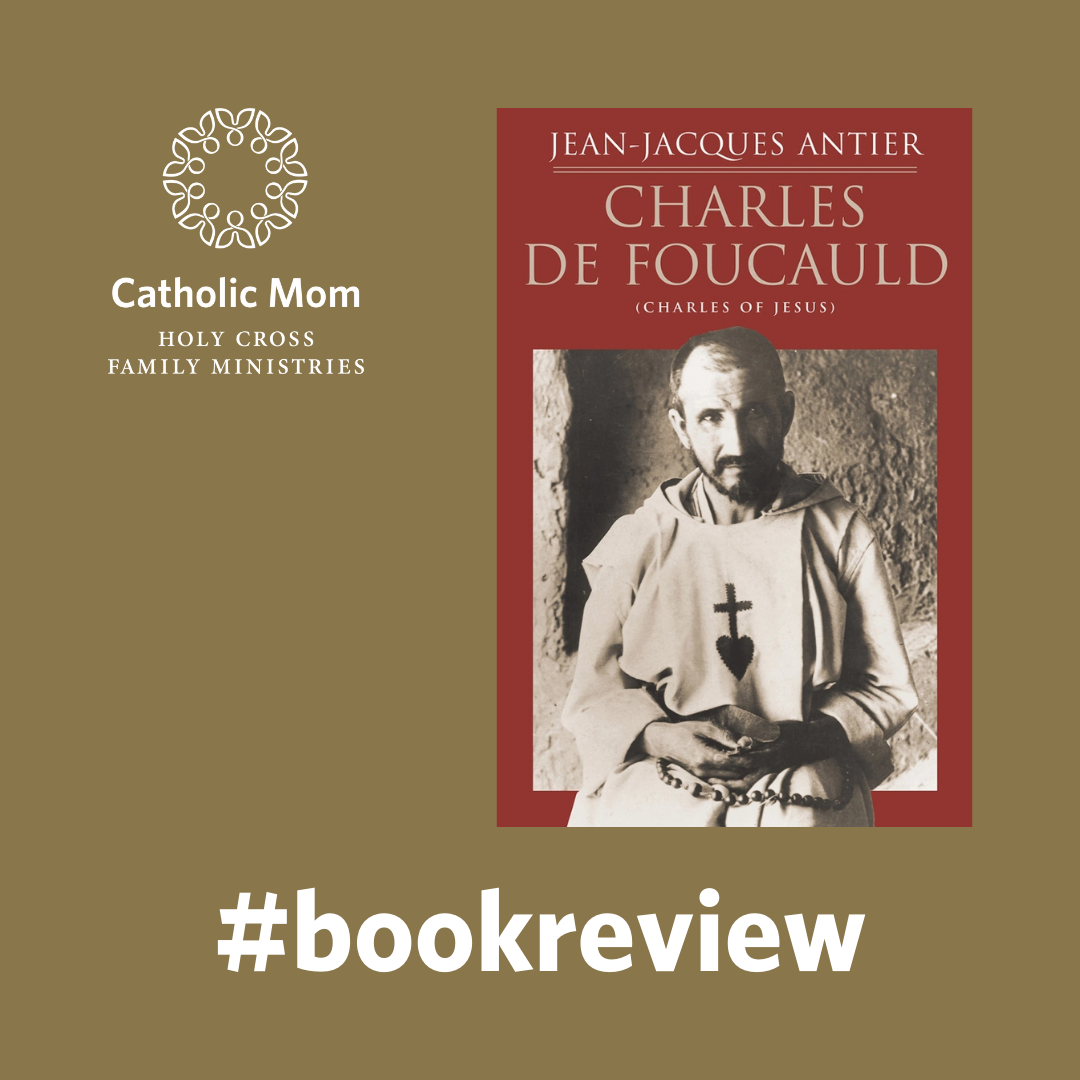
Sr. Margaret Kerry, FSP, reviews Jean-Jacques Antier's comprehensive biography of the newly canonized saint.
After reading many biographies of newly canonized Saint Charles de Foucauld, I found Jean-Jacques Antier’s biography, Charles De Foucauld, to be the most comprehensive. His early life forged his life of dissipation. His conversion came because of the Gospel and faith lived by others. His sincere prayer, “If you exist, let me know you,” opened the door for Christ: “As soon as I believed there was a God, I realized that I could do nothing else but live solely for Him.” Charles realized that God had never abandoned him, “You were acting continually in my soul, and it did not know you.”

At first it was the desert that expanded his heart. It was in the vast emptiness that he realized he longed for more. Witnessing the faith of the Muslims gave him pause. God permeated their waking moments. When he returned to France, he became aware of Christian friends who also live for God in their various vocations. He learned what love meant from his close friend and later from his spiritual director. Jean-Jacques Antier’s book takes us on that journey without skipping all the circuitous paths Charles set out on.
How did he arrive as such a degree of holiness and union with God? Even though at first glance his life seems impossible to imitate, this book allowed me to meditate on the weaknesses of his character, the pride that eventually became kenosis in Christ, the willfulness that succumbed to abandonment in God.
Photos in the center of the book are a welcome break in the text, all sixteen pages of them! At about this time you get to them you really want to know what Charles, his friends, and his family looked like—and how he changed in demeanor. He was intelligent and brilliant. How did he hand over that desire to accomplish great things? His prayer of abandonment reveals this transformation brought about by boundless confidence in our loving God. An index at the back of the book contains prayers of Charles, a timeline of his life and era, and more.
This book does not disappoint. It is a meditation that matches our own sometimes circuitous journey veering off the path of our desires and onto the path of God’s desires.
Here are some snippets on St. Charles by Pope Francis:
Continue to imagine Jesus who walks in the midst of the people, who patiently carries out laborious work, who lives in the daily life of a family and of a city. How happy the Lord is to see that he is imitated in the way of smallness, humility, and sharing with the poor! Charles de Foucauld, in the silence of the hermit’s life, in worship and in service to his brothers, wrote that while “we are inclined to favor works, whose effects are visible and tangible, God gives first place to love and then to sacrifice inspired by love and to obedience derived from love” (Letter to Marie de Bondy, 20 May 1915). As a Church we need to return to the essential, to not get lost in so many secondary matters, at the risk of losing sight of the simple purity of the Gospel. (May 18, 2022)
And then universality. The new saint lived his Christian existence as a brother to all, starting from the smallest. His goal was not to convert others but to live God’s freely given love, putting into effect “the apostolate of goodness”. He wrote: “I want to accustom all Christians, Muslims, Jews and idolaters to consider me as their brother, the universal brother” (Letter to Marie de Bondy, 7 January 1902). And to do this, he opened the doors of his house so that it might be “a port” for all, “the shelter of the Good Shepherd.” I thank you for carrying on this witness, which does so much good, especially at a time when there is a risk of closing oneself in particularisms, of increasing distances, of losing sight of one’s brother. We unfortunately see this in the news every day.
Brother Charles, in the hardships and poverty of the desert, remarked: “My soul is always in joy” (Letter to Fr. Huvelin, 1 February 1898).

Copyright 2022 Sr. Margaret Kerry, FSP
Images: Rabanus Flavus, Public domain, via Wikimedia Commons; Canva
About the Author

Sr. Margaret Kerry, fsp
A Daughter of St. Paul for 40 years Sr. Margaret continues to pursue new ways to proclaim the Gospel: sharing the Pauline Charism with the laity, writing books (St. Anthony of Padua: Fire & Light; Strength in Darkness: John of the Cross; Prayers for the New Evangelization), & through direct evangelization. She is available for workshops on the Vocation & Mission of the Laity, Media Literacy, and The New Evangelization. mkerry@paulinemedia.com


.png?width=1806&height=731&name=CatholicMom_hcfm_logo1_pos_871c_2728c%20(002).png)
Comments